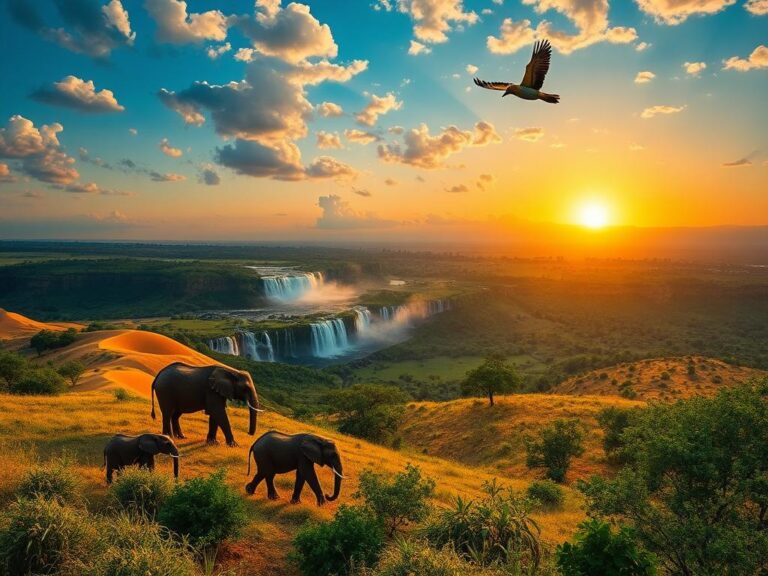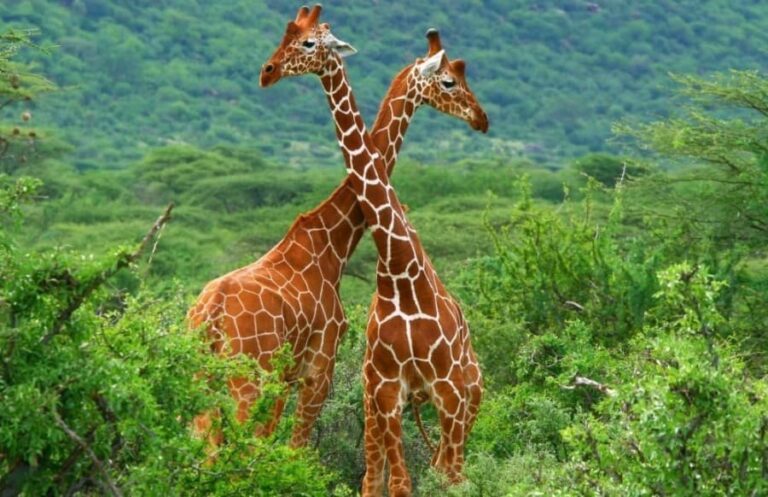
The Ultimate Guide to Planning an Unforgettable Africa Safari Trip
Africa safari trip offers a thrilling adventure through breathtaking landscapes and unparalleled wildlife encounters.
From the iconic Big Five to vast grasslands teeming with life, embarking on a safari is a bucket-list experience for many travelers.
This article will guide you through essential tips, must-see destinations, and unforgettable experiences that will make your Africa safari trip memorable.
Choosing the Right Safari Destination
When planning your Africa safari trip, selecting the right destination is crucial.
Africa boasts a variety of stunning landscapes, each home to unique wildlife and ecosystems.
Popular safari destinations include renowned national parks such as the Serengeti, Kruger National Park, and the Maasai Mara.
- Serengeti National Park: Famous for the Great Migration, where millions of wildebeest and zebras travel in search of fresh grazing grounds.
- Kruger National Park: Home to the Big Five (lion, leopard, elephant, buffalo, and rhino) and offering diverse habitats, from savannah to dense bush.
- Maasai Mara: Known for its breathtaking landscapes and rich wildlife, as well as opportunities to engage with the Maasai people.
Each of these destinations offers distinct experiences, so choose one that aligns with your interests, whether it’s game drives, walking safaris, or cultural encounters.
Understanding the Best Time to Go
The timing of your Africa safari trip can significantly impact your experience.
While it’s possible to enjoy wildlife seeing throughout the year, certain seasons offer exceptional opportunities for sightings and memorable events.
- Dry Season (June to October): Optimal for wildlife viewing as animals congregate around water sources and foliage thins out, making it easier to spot them.
- Green Season (November to May): Perfect for birdwatching and witnessing the birthing period of various species, particularly in late January to March.
- Great Migration (April to July): Experience the spectacular movement of wildebeest and zebras across the Serengeti and Maasai Mara.
Ultimately, the best time for your safari depends on what wildlife experiences you’re hoping to enjoy.
Finding the Right Safari Operator
With countless safari operators to choose from, finding the right one can seem overwhelming.
Here are some tips to help you select an operator that suits your needs:
- Research: Look for operators with positive reviews and testimonials from past clients to gauge their credibility and service quality.
- Compare Packages: Different operators offer various safari packages, including guided tours, self-drive options, and luxury lodges. Choose one that aligns with your budget and interests.
- Ask Questions: Inquire about their safety measures, experience in the industry, and group sizes to ensure a comfortable and enjoyable experience.
Your choice of operator can enhance your experience through knowledgeable guides, comfortable accommodations, and well-planned itineraries.
Planning Your Accommodations
Your accommodation options during an Africa safari trip range from luxury lodges to budget-friendly campsites.
Consider the following when choosing your lodging:
- Location: Select accommodations situated near your chosen safari destination for easy access to wildlife sightings.
- Type of Experience: If you want a more immersive experience, consider a tented camp or safari lodge that offers a close connection to nature.
- Amenities and Services: Look for accommodations that provide meals, safari drives, and additional activities to enhance your experience.
Regardless of your budget, there’s a perfect accommodation waiting to make your safari unforgettable!
Must-See Wildlife Encounters
Getting up close and personal with Africa’s wildlife is undoubtedly one of the highlights of any safari trip.
Some incredible wildlife encounters to look forward to include:
- The Majestic Lion Encounter: Witnessing a pride of lions basking in the sunlight is an unforgettable experience, with the king of the jungle commanding attention.
- Elephant Gatherings at Waterholes: Watching a herd of elephants splash around a waterhole provides a heartwarming view of family bonds and playful antics.
- The Great Migration: Experience the awe of millions of wildebeest and zebras undertaking their perilous journey across the Serengeti.
- Cheetah Chase: Witnessing a cheetah sprint in pursuit of its prey is a breathtaking display of speed and agility.
- Hippos in Their Natural Habitat: Observing the daily life of hippos lounging in the river and their unique behavior above and below the waterline.
With countless species to encounter, each safari trip promises thrilling wildlife experiences that can leave lasting memories.
The Importance of Conservation
Conservation plays an essential role in maintaining the delicate balance of Africa’s ecosystems.
As tourists, your safari experience contributes to local economies and conservation efforts that protect wildlife.
“In every walk with nature, one receives far more than he seeks.” – John Muir
Here are some ways you can support conservation efforts during your safari trip:
- Choose Eco-Friendly Options: Select eco-lodges and operators that prioritize sustainability and conservation efforts.
- Participate in Conservation Programs: Engage in conservation-led initiatives such as wildlife monitoring and rehabilitation projects.
- Educate Yourself and Others: Share your knowledge about the importance of wildlife protection and encourage others to value conserving Africa’s wildlife.
By supporting conservation efforts, you ensure that future generations can enjoy Africa’s incredible wildlife and natural beauty.
Your Safari Packing List
Packing for your Africa safari trip requires careful thought to ensure you have everything you need for comfort and enjoyment.
Here’s a checklist of essentials to include:
- Clothing: Lightweight, breathable, and neutral-colored clothing to blend in with the natural environment.
- Footwear: Comfortable hiking shoes or sandals for walking and exploring.
- Sun Protection: Sunscreen, sunglasses, and a wide-brimmed hat to shield yourself from the sun.
- Binoculars and Camera: To enhance wildlife sightings and capture unforgettable moments.
- First-Aid Kit: A basic kit to address any minor injuries or illness during your trip.
By preparing well, you can ensure a smooth and enjoyable safari adventure.
Conclusion
Your Africa safari trip promises to be an extraordinary adventure filled with mesmerizing wildlife encounters and breathtaking landscapes.
From choosing the right destination and operator to embracing conservation efforts and packing wisely, planning your journey is a vital part of the experience.
By investing time into preparation, you set the stage for the unforgettable moments and profound connections with nature that define a successful safari trip.
FAQ
What is the best time to go on an African safari?
The best time for an African safari largely depends on the specific destination and the wildlife experiences you’re looking for.
Generally, the dry season from June to October is favorable for wildlife viewing, as animals congregate around water sources and foliage thins out.
What should I wear on safari?
When going on safari, aim for lightweight and breathable clothing in neutral colors to blend into the environment.
Comfortable footwear, a wide-brimmed hat, sunglasses, and sunscreen are essential items to pack as well.
How can I support conservation efforts while on safari?
You can support conservation efforts by choosing eco-friendly lodges, participating in conservation programs, and educating others about the importance of wildlife protection.
Are there age restrictions for safari participants?
Age restrictions for participating in safaris can vary by operator and destination.
Some operators may have minimum age requirements for certain activities, while others offer family-friendly options.
How should I prepare for a safari trip?
Preparing for a safari involves selecting the right destination and operator, packing essential gear, and familiarizing yourself with wildlife behavior and safety protocols.
By taking these steps, you can enjoy a seamless and enriching safari experience.
Now that you’ve read about the essential aspects of planning an Africa safari trip, it’s time to share your thoughts or ask questions in the comments below!


